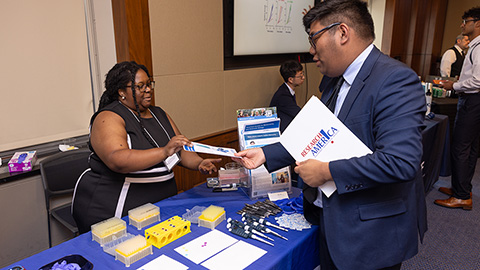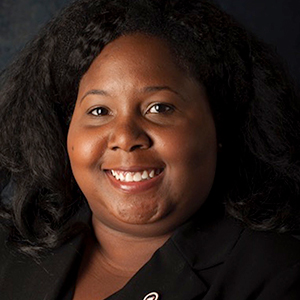ASBMB supports Pell Grant flexibility bill
The American Society for Biochemistry and Molecular Biology endorsed a bill earlier this month that will allow disabled students with accommodations to reduce their course load and still receive their Pell Grants and receive funding for longer.
Pell Grants fund students who come from families with low to moderate incomes. They are one of the largest sources of funding for undergraduate students, especially those who come from historically marginalized groups.
To receive the full grant amount, students must enroll full time. However, students with disabilities often need to enroll part time, resulting in less funding.
Students with disabilities enroll in STEM programs at the same rate as students without disabilities; however, only 29% of students with disabilities continue to earn bachelor’s degrees. This disparity is a result of many barriers, such as lack of proper accommodation and a welcoming climate, but financial struggles top the list.
Similar to students without disabilities, students with disabilities experience food and housing insecurities; but compared with their counterparts, their rates of food insecurity is higher.
Constituting 19% of undergraduate students, students with disabilities need to be prioritized.
The bill introduced in the U.S. House by Rep. Joseph Morelle, D-N.Y., would amend the Higher Education Act of 1965, extending the period a student may receive Pell Grants to more than 12 semesters while being enrolled part time, resulting in more students with disabilities receiving funding for longer.
The ASBMB endorsed the bill saying that the legislation will “contribute to the retention and degree completion of students with disabilities.”
Stephan Smith, executive director of the Association on Higher Education and Disability, said that the legislation will provide “life-changing opportunities” by “instituting a commonsense flexibility that would allow disabled students to attend college at a pace consistent with their needs.”
Sarina Neote, director of public affairs for the ASBMB, said that the bill will help more students with disabilities earn degrees.
“However, more policies tackling accommodation needs, poor research climate, and accessible research infrastructure need to be implemented to increase the retention of students with disabilities in STEM,” she said.
Enjoy reading ASBMB Today?
Become a member to receive the print edition four times a year and the digital edition monthly.
Learn moreGet the latest from ASBMB Today
Enter your email address, and we’ll send you a weekly email with recent articles, interviews and more.
Latest in Policy
Policy highlights or most popular articles

Embrace your neurodivergence and flourish in college
This guide offers practical advice on setting yourself up for success — learn how to leverage campus resources, work with professors and embrace your strengths.

ASBMB honors Lawrence Tabak with public service award
He will deliver prerecorded remarks at the 2025 ASBMB Annual Meeting in Chicago.

Summer internships in an unpredictable funding environment
With the National Institutes of Health and other institutions canceling summer programs, many students are left scrambling for alternatives. If your program has been canceled or delayed, consider applying for other opportunities or taking a course.

Black excellence in biotech: Shaping the future of an industry
This Black History Month, we highlight the impact of DEI initiatives, trailblazing scientists and industry leaders working to create a more inclusive and scientific community. Discover how you can be part of the movement.

ASBMB releases statement on sustaining U.S. scientific leadership
The society encourages the executive and legislative branches of the U.S. government to continue their support of the nation’s leadership in science.

ASBMB and advocacy: What we accomplished in 2024
PAAC members met with policymakers to advocate for basic scientific research, connected some fellow members with funding opportunities and trained others to advocate for science.

